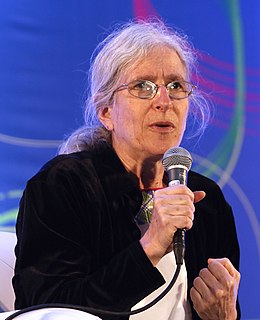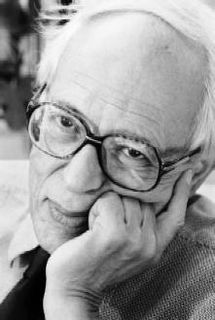Top 694 Commonly Quotes & Sayings - Page 12
Explore popular Commonly quotes.
Last updated on April 16, 2025.
The intention of Paul VI with regard to what is commonly called the Mass, was to reform the Catholic liturgy in such a way that it should almost coincide with the Protestant liturgy - but what is curious is that Paul VI did that to get as close as possible to the Protestant Lord's supper... there was with Paul VI an ecumenical intention to remove, or at least to correct, or at least to relax, what was too Catholic, in the traditional sense, and, I repeat, to get the Catholic Mass closer to the Calvinist Mass.
Since the fabric of the universe is most perfect and the work of a most wise Creator, nothing at all takes place in the universe in which some rule of maximum or minimum does not appear ... there is absolutely no doubt that every affect in the universe can be explained satisfactorily from final causes, by the aid of the method of maxima and minima, as it can be from the effective causes themselves ... Of course, when the effective causes are too obscure, but the final causes are readily ascertained, the problem is commonly solved by the indirect method.
I think America is a really interesting place. In New Zealand, we don't sue each other really commonly. There's a really specific reason, like someone's arguing over a fence that's been put up that's too high. Sort of practical things. And journalists are rarely sued for things. Whereas in America, you have a culture where that's the first thing you do. There's an ongoing pattern here where if you've got money, you can bully other people into doing what you want them to do. You don't need to be in it to win, you just need to be in it to be a pest.
Let all our employment be to know GOD: the more one knows Him, the more one desires to know Him. And as knowledge is commonly the measure of love, the deeper and more extensive our knowledge shall be, the greater will be our love: and if our love of GOD were great, we should love Him equally in pains and pleasures.
The ends of scientific classification are best answered, when the objects are formed into groups respecting which a greater number of general propositions can be made, and those propositions more important, than could be made respecting any other groups into which the same things could be distributed. ... A classification thus formed is properly scientific or philosophical, and is commonly called a Natural, in contradistinction to a Technical or Artificial, classification or arrangement.
Setting aside the vast herd which shows no definable character at all, it seems to me that the minority distinguished by what is commonly regarded as an excess of sin is very much more admirable than the minority distinguished by an excess of virtue. My experience of the world has taught me that the average wine-bibbler is a far better fellow than the average prohibitionist, and that the average rogue is better company than the average poor drudge, and that the worst white-slave trader of my acquaintance is a decenter man than the best vice crusader.
Like other discriminatory legislation in our country's history, immigration laws define and differentiate legal status on the basis of arbitrary attributes. Immigration laws create unequal rights. People who break immigration laws don't cause harm or even potential harm (unlike, for example, drunk driving, which creates the potential for harm even if no accident occurs). Rather, people who break immigration laws do things that are perfectly legal for others, but denied to them--like crossing a border or, even more commonly, simply exist.
In summer we live out of doors, and have only impulses and feelings, which are all for action, and must wait commonly for the stillness and longer nights of autumn and winter before any thought will subside; we are sensible that behind the rustling leaves, and the stacks of grain, and the bare clusters of the grape, there is the field of a wholly new life, which no man has lived; that even this earth was made for more mysterious and nobler inhabitants than men and women. In the hues of October sunsets, we see the portals to other mansions than those which we occupy.
There is no reason products and services could not be swapped directly by consumers and producers through a system of direct exchange – essentially a massive barter economy. All it requires is some commonly used unit of account and adequate computing power to make sure all transactions could be settled immediately. People would pay each other electronically, without the payment being routed through anything that we would currently recognize as a bank. Central banks in their present form would no longer exist – nor would money.
Printed prose is historically a most peculiar, almost an aberrant way of telling stories, and by far the most inherently anesthetic: It is the only medium of art I can think of which appeals directly to none of our five senses. The oral and folk tradition in narrative made use of verse or live-voice dynamics, embellished by gesture and expression--a kind of rudimentary theater--as do the best raconteurs of all times. Commonly there was musical accompaniment as well: a kind of one-man theater-of-mixed-means.
What separates people that create from the people that don't is just one's ability to take action despite the fear, you know? Or to suspend the fear, or more commonly, the voice of judgment within yourself that says, "This isn't good enough. You don't deserve to do this. You're not worthy. Your expression isn't meaningful. You have nothing to contribute, just get back to your 9-to-5 job." It's not so much that I don't have all those same voices, it's more just that for some reason as a kid I was shameless enough that could plow through them for long enough to get something on the table.
So far as a man may be proud of a religion rooted in humility, I am very proud of my religion; I am especially proud of those parts of it that are most commonly called superstition. I am proud of being fettered by antiquated dogmas and enslaved by dead creeds (as my journalistic friends repeat with so much pertinacity), for I know very well that it is the heretical creeds that are dead, and that it is only the reasonable dogma that lives long enough to be called antiquated.
Some years ago John Kenneth Galbraith wrote in an essay on his efforts at writing a history of economics: 'As one approaches the present, one is filled with a sense of hopelessness; in a year and possibly even a month, there is now more economic comment in the supposedly serious literature than survives from the whole of the thousand years commonly denominated as the Middle Ages ... anyone who claims to be familiar with it all is a confessing liar.' I believe that all physicists would subscribe to the same sentiments regarding their own professional literature. I do at any rate.
Numerous studies have clearly demonstrated that coconut oil has a neutral effect on cholesterol levels. The reason coconut oil does not adversely affect cholesterol is because it is composed primarily of medium-chain fatty acids (MCFA). These fatty acids are different from those commonly found in other food sources and are burned almost immediately for energy production, and so they are not converted into body fat or cholesterol to the degree other fats are and do not affect blood cholesterol levels.
Only simple ideas can be held by large groups of people. Commonly held ideas are almost always dumbed down until they are practically lies... and often dangerous ones. Once vast numbers of people have come to believe the lie, they adjust their own behavior to bring themselves into sync with it, and thereby change the world itself. The world, then, no longer resembles the one that gave rise to the original insight. Soon, a person's situation is so at odds with the world as it really is that a crisis develops, and he or she must seek a new metaphor for explanation and guidance.
One dictionary that I consulted remarks that "natural history" now commonly means the study of animals and plants "in a popular and superficial way," meaning popular and superficial to be equally damning adjectives. This is related to the current tendency in the biological sciences to label every subdivision of science with a name derived from the Greek. "Ecology" is erudite and profound; while "natural history" is popular and superficial. Though, as far as I can see, both labels apply to just about the same package of goods.
A father would do well, as his son grows up, and is capable of it, to talk familiarly with him; nay, ask his advice, and consult with him about those things wherein he has any knowledge or understanding. By this, the father will gain two things, both of great moment. The sooner you treat him as a man, the sooner he will begin to be one; and if you admit him into serious discourses sometimes with you, you will insensibly raise his mind above the usual amusements of youth, and those trifling occupations which it is commonly wasted in.
The feeling persists that no one can simultaneously be a respectable writer and understand how a refrigerator works, just as no gentleman wears a brown suit in the city. Colleges may be to blame. English majors are encouraged, I know, to hate chemistry and physics, and to be proud because they are not dull and creepy and humorless and war-oriented like the engineers across the quad. And our most impressive critics have commonly been such English majors, and they are squeamish about technology to this very day. So it is natural for them to despise science fiction.
The Man of Genius may at the same time be, indeed is commonly, an Artist, but the two are not to be confounded. The Man of Genius,referred to mankind, is an originator, an inspired or demonic man, who produces a perfect work in obedience to laws yet unexplored. The artist is he who detects and applies the law from observation of the works of Genius, whether of man or nature. The Artisan is he who merely applies the rules which others have detected. There has been no man of pure Genius, as there has been none wholly destitute of Genius.
Incidentally, I am intrigued by how many European and Latin American writers expressed their political views in the columns they routinely wrote or write in the popular press, like Saramago, Vargas Llosa, and Eco. This strikes me as one way of avoiding opinionated fiction, and allowing your imagination a broader latitude. Similarly, fiction writers from places like India and Pakistan are commonly expected to provide primers to their country's histories and present-day conflicts. But we haven't had that tradition in Anglo-America.
Another error is an impatience of doubt and haste to assertion without due and mature suspension of judgment. For the two ways of contemplation are not unlike the two ways of action commonly spoken of by the ancients; the one plain and smooth in the beginning, and in the end impassable; the other rough and troublesome in the entrance, but after a while fair and even. So it is in contemplation; if a man will begin with certainties, he shall end in doubts; but if he will be content to begin with doubts, he shall end in certainties.
In my day a reporter who took an assignment was wholly on his own until he got back to the office, and even then he was little molested until his copy was turned in at the desk; today he tends to become only a homunculus at the end of a telephone wire, and the reduction of his observations to prose is commonly farmed out to literary castrati who never leave the office, and hence never feel the wind of the world in their faces or see anything with their own eyes.
In the book Soldiers on the Home Front, I was greatly struck by the fact that in childbirth alone, women commonly suffer more pain, illness and misery than any war hero ever does. An what's her reward for enduring all that pain? She gets pushed aside when she's disfigured by birth, her children soon leave, hear beauty is gone. Women, who struggle and suffer pain to ensure the continuation of the human race, make much tougher and more courageous soldiers than all those big-mouthed freedom-fighting heroes put together.
Men: Stand in solidarity with women. Women, if you were born female, you were born on a battlefield. You will be punished for even saying that out loud, but the grim truth is you're going to be punished no matter what for the 'sin' of being female. Battering is the most commonly committed violent crime in the United States. That's a man beating a woman. Globally, half of all women will experience life-threatening violence from a man. Half. That's more hatred than I can comprehend. Right now, that battlefield is such a slaughter that we can't even collect our wounded.
Think of it: the lowest common denominator in being digital is not your operating system, modem, or model of computer. It's a tiny piece of plastic, designed decades ago by Bell Labs' Charles Krumreich, Edwin Hardesty, and company, who thought they were making an inconspicuous plug for a few telephone handsets. Not in their wildest dreams was Registered Jack 11 - a modular connector more commonly known as the RJ-11 - meant to be plugged and unplugged so many times, by so many people, for so many reasons, all over the world.
One of the most commonly overlooked spiritual practices is daring to be completely honest with everyone you encounter. Some may say others cannot handle their honesty, but true honesty is not a strategy or a weapon of any kind. It is the willingness to be open and absolutely transparent in sharing how any moment feels in your heart. It has nothing to do with confrontation, accusation, or any form of blame. True honesty is the willingness to stand completely exposed, allowing the world to do what it may, and say what it will, only so you may know who you are - beyond all ideas.
Among the natural rights of the colonists are these: first, a right to life; second, to liberty; third, to property; together with the right to support and defend them in the best manner they can. These are evident branches of ... the duty of self-preservation, commonly called the first law of nature. All men have a right to remain in a state of nature as long as they please; and in case of intolerable oppression, civil or religious, to leave the society they belong to, and ernter into another.... Now what liberty can there be where property is taken away without consent?
I realized the shells were talking in a voice I recognized. I should have; it was my own. Had I always known that? I suppose I had. On some level, unless we're mad, I think most of us know the various voices of our own imaginations. And of our memories, of course. They have voices, too. Ask anyone who has ever lost a limb or a child or a long-cherished dream. Ask anyone who blames himself for a bad decision, usually made in a raw instant (an instant that is most commonly red). Our memories have voices, too. Often sad ones that clamor like raised arms in the dark.
In the final analysis the hierarchic pattern is nothing like the straightforward witness for organic evolution that is commonly assumed. There are facets of the hierarchy which do not flow naturally from any sort of random undirected evolutionary process. If the hierarchy suggests any model of nature it is typology and not evolution. How much easier it would be to argue the case for evolution if all nature's divisions were blurred and indistinct, if the systema naturalae was largely made up of overlapping classes indicative of sequence and continuity.
It is commonly said that if rational argument is so seldom the cause of conviction, philosophical apologists must largely be wasting their shot. The premise is true, but the conclusion does not follow. For though argument does not create conviction, the lack of it destroys belief. What seems to be proved may not be embraced; but what no one shows the ability to defend is quickly abandoned. Rational argument does not create belief, but it maintains a climate in which belief may flourish.
Since it is to the advantage of the wage-payer to pay as little as possible, even well-paid labor will have no more than what is regarded in a particular society as the reasonable level of subsistence. The lower ranks of labor will commonly have less, and if public relief were afforded even up to the wage-level of the lowest ranks of labor, that relief would compete in the labor market; check or dry up the supply of wage-labor. It would tend to render the performance of work by the wage-earner redundant.
Sri Yukteswar used to poke gentle fun at the commonly inadequate conceptions of renunciation."A beggar cannot renounce wealth," Master would say. "If a man laments: 'My business has failed; my wife has left me; I will renounce all and enter a monastery,' to what worldly sacrifice is he referring? He did not renounce wealth and love; they renounced him!"Saints like Gandhi, on the other hand, have made not only tangible material sacrifices, but also the more difficult renunciation of selfish motive and private goal, merging their inmost being in the stream of humanity as a whole.
The principal, the only, thing a man makes, is his condition of fate. Though commonly he does not know it, nor put up a sign to this effect, "My own destiny made and mended here." (Not yours.) He is a master workman in the business. He works twenty-four hours a day at it, and gets it done. Whatever else he neglects or botches, no man was ever known to neglect this work. A great many pretend to make shoes chiefly, and would scout the idea that they make the hard times which they experience.
If we lived in a State where virtue was profitable, common sense would make us good, and greed would make us saintly. And we'd live like animals or angels in the happy land that /needs/ no heroes. But since in fact we see that avarice, anger, envy, pride, sloth, lust and stupidity commonly profit far beyond humility, chastity, fortitude, justice and thought, and have to choose, to be human at all... why then perhaps we /must/ stand fast a little --even at the risk of being heroes.






























